**
Q:** What are your thoughts on the competition the last six years against Rex Ryan and his teams?
BB: We have a lot of respect for the Jets. They're a good football team. We had a real competitive game with them earlier in the year. I'm not really that concerned about what happened five, 10, 15 years ago. [I'm] more concerned about this matchup this week. They played another tight, tough game last week and beat the Titans at the end. They've been in a lot of close games – won some, lost some. We were in one with them and expect a tough, 60-minute battle.
Q: What has it been like for you competing against him and his teams and his scheme? How much have you enjoyed that competitive aspect of it?
BB: I mean, every week we have challenges. Every team has good players, good coaches and tough matchups. This is the Jets.
Q: What have you seen from the Jets running game? How have they been used this year?
BB: Well they use a lot of guys. They have a lot of good runners: [Chris] Ivory probably runs as hard as any player we've played against recently. [Chris] Johnson has a lot of skill; [Geno] Smith hurt us running in the first game. He's a good runner, he's a very athletic guy, can scramble in the passing game. They ran a bunch of reverses – [Jeremy] Kerley, obviously [Percy] Harvin. They use a lot of people in their running game to make you defend from sideline to sideline, as well as the inside power-type games and some read-option plays. They have a very extensive and diverse running game. We're going to really have to – this will probably be the most volume of running game schemes and run game issues that they create that we've had in quite a while, certainly all year.
**
Q:** I was looking at the game and wanted to ask about the Wildcat. Chris Johnson had a long run at the end of the game to set up their winning touchdown, I don't know if it was the winning touchdown. I believe it started out up here with [current Jets quarterbacks] Coach [David] Lee and Ronnie Brown, but is that the single-wing modern version? Also, when the Jets put Geno Smith as a wide receiver, does that present other complications in defending it?
BB: Well, I think the Wildcat is, like a lot of things, defensively you just have to be ready for it every week. Wildcat, unbalanced line, empty formation, all those different type of things, if a team has shown them, they've shown them. But if they haven't shown them, there's always a possibility that they could put something like that together as a game plan thing. We always have to be ready for those type of things. The Wildcat with the quarterback extended is, yeah, definitely I would say a version of the old single-wing type of scheme type of offense. It just presents another – but it's no different than a running quarterback. If you have a running quarterback in the backfield like [Ryan] Tannehill, Tannehill is back there with a running back and him, when he either gives the ball or fakes it to the back and then he either keeps it around the end or boots it and doesn't have the ball, you still have to defend that. The Wildcat, whether you split the guy out, or whether you do what Miami did and take the quarterback out after he hands the ball, you have to have somebody to account for that guy. It just creates another gap for you on the defensive line that that's the problem that you just run out of guys or you don't have the player that you would normally have if he wasn't assigned to the quarterback. You won't have that player because you have to commit somebody to the quarterback. It changes your numbers and some of your run defense fits and reads to again, depending on what coverage you're in or what type of defense you're in, but that's the problems it creates and that's why teams use it. However you do that with the quarterback, whether you boot him and pass it like the [Mike] Shanahan offenses did, they were so famous and productive for in Denver with the stretch play and then the boot, you have to have somebody to contain that guy. Or the read-option concept or the Wildcat concept, they're all ways to try to take one guy out of the defensive front and force you to account for either the quarterback coming out of the backfield or him already be extended out. Then you have one less player in the box than your normal running game. That's what they're trying to do.
**
Q:** Percy Harvin wasn't part of the Jets when you guys played him the first time. How have you seen the Jets use him and has he changed anything that they do offensively?
BB: I think he's definitely, he is a weapon and they've used him as a weapon. They've handed him the ball a number of times. He's certainly a threat as a receiver, so he can go down the field and get behind the defense. He can carry the ball on outside plays like reverses and speed sweeps and things like that. He's also very dangerous on catch-and-run plays like under-routes and slip-screens and those type of tings. They move him around in different spots, so you don't know exactly where he's going to be. Sometimes he's detached, sometimes he's in the backfield. He's obviously a problem in kickoff returns. He's a player that we know will be utilized somehow in their game plan. We have to have an awareness of where he is. They've been creative in getting him the ball and in different ways and trying to get him into space and give him a chance to get started. He's an explosive and very dynamic player. That will be a big challenge for us to mentally make sure that we don't make a mistake on what we're doing and then playing whatever play they run properly and doing a good job with our leverage and our tackling on not only him, but really all the other skill players. They have those backs and they've got a lot of guys that are hard to tackle that make yards on their own.
Q: What is your opinion on Brandon Browner? He's brought a lot to the defense with the physical play. At the same time, he's been called for a team-high 15 penalties. Some of them are close calls, others not so much. What is your view on that from the perspective of, based on the style of play is there more tolerance for the high penalty count or is it more of a concern?
BB: Penalties have been an issue for us all year as a team. We've had a lot of penalties, more than we want – way more than we want. We're trying to decrease that number and the frequency. [We're] certainly not there yet, but we continue to make it a priority and address it and work to reduce them. I think there's definitely been some progress, but we're not there yet. That goes for everybody. It's everybody's responsibility to play penalty free in their area, whether it's the coaches on play-calling and substitution and things like that, or whether it's the individual players based on their techniques and whatever the situation is that they're in: offense, defense, special teams. Whatever it happens to be, it's to play penalty free. That always has been an emphasis point for us, and it will continue to be one for everybody.
PATRIOTS OFFENSIVE COORDINATOR/QUARTERBACKS JOSH MCDANIELS CONFERENCE CALL
**
Q:** Bill Belichick said the other day that all of your running backs have very different styles. When it comes to Jonas Gray and LeGarrette Blount, how do you see their skill sets differ?
JM: There are a lot of variables here – experience – LeGarrette has certainly obviously played in more games, which is a little bit of a difference. I think LeGarrette is bigger than Jonas. Jonas, in terms of the way they read things and those kinds of things, I think it's similar. They've played in different packages in our offense in the last few weeks here just because that's kind of the way we've created the game plan, whether it's more base runs or more sub runs for one of them or the other, shotgun, under center – those kinds of things. We try to make a decision as the week goes. They're both obviously capable of carrying the ball on early downs and are doing a good job with it. I don't try to over-distinguish in terms of exact traits and skill sets. I just know that they're both capable. We have a lot of confidence in both of them, and they've both been productive for us this year, so we're hoping that continues going forward.
Q: One play in the red zone in this last game caught my eye – the Shane Vereen touchdown run. It looked like the Dolphins aligned the safety over Rob Gronkowski for double coverage. Is that a check there by Tom Brady? Philosophically, how do you manage that in the red zone for when there should be a check to a run play?
JM: There are multiple different things that could happen in those types of situations. I think every offense has the ability to send in more than one play at a time, where you would have the first play, and then you'd have a second play, so if they give you one defense, you want to run this one, and if they give you a second defense, you'd love to have the second call on. There is also, in each system I'm sure, the ability to change the play if you send in a call and there is maybe a look that you get that gives you a better opportunity to succeed if you change the call. Then the quarterback could try to get you into a play like that as well. That definitely was a situation there where they were really conscious about trying to defend certain people in that look, and obviously Gronk was one of them. They were, I'm sure, going to double somebody on the other side as well from the look of it. Since we didn't throw the ball, you never really could tell who it was. You want to give yourself as many ways and as many opportunities to run the right play as many times as you can in the game, and I thought that was an example of Tom getting us into a good situation there, and then we capitalized on it with Shane's run for a touchdown.
**
Q:** You guys didn't have the ball much the last time you played the Jets, but what stands out as different about them now compared to when you played them in October? Where are they challenging opposing offenses?
JM: It's always a great challenge against this defense. I think they're very well coached. They have a very solid front seven. They're extremely difficult to run the football on, and they do a good job of playing good, fundamental technique. They're tough, they're physical, they're big, and they do a great job of trying to force you into becoming one dimensional by defending the run so well. They've got some younger guys in the secondary that have shown up and made some plays for them. Certainly [Jaiquawn] Jarrett has made some plays. [Calvin] Pryor has made some big hits and some impact plays for them in the secondary. [Dawan] Landry, we're more familiar with, but he's definitely been in there and done some good things. We haven't played against Marcus Williams, the young kid from North Dakota State that we'll see now this week, I think. And then they've got [Antonio] Allen, who has definitely done a good job in the past against some of our tight ends, has been matched up there in the past in the secondary. This is a good group. They challenge you with their scheme. They don't give up many big plays. You have to work to drive the ball against them, and they make it difficult for you to do that and stay balanced while you're doing it because they defend the running game so well. We've got to do better than what we did in the first game. We didn't have the ball much, and that's because we had too many three-and-outs, didn't do a good enough job on third down of converting when we had our opportunities. We've got a lot to fix, a lot to work on to try to get better, and we need to have a good performance there on Sunday against this defense.
**
Q:** On the Shane Vereen touchdown run, it looked like he made a few reads before deciding to bounce it outside. How much credit does he get when you look at that in film review, and how much do you coach it?
JM: Whenever the back gets the ball, we certainly have an intended point of entry with the call, whatever that may be. I think the guys up front deserve credit for being able to get the back started, always. And then like I said, there is a desired point of entry, and then there's also the read that the back is looking at, whether it's a down lineman, whether it's a defensive end, whether it's a front-side linebacker – whatever it may be that the play is being read off of. The back gets his eyes in the right place and then makes a decision, and once he makes his decision then he's just running. I thought Shane made a good choice there. He initially started to go inside, dipped it back to the outside, and we had enough guys covered up that he was able to do that and then get it in with some success. Anytime those plays work, there are more than a few guys doing their job well. Shane definitely deserves credit for being able to do that, make a good read, make a good choice, bounce it out and then get it in, and the line obviously did a nice job of giving him an opportunity to get started through the line of scrimmage and give him a chance to break that tackle there to cross the goal line.
Q: Play-action seemed to work pretty well in the second half. Was that an adjustment made at halftime? Secondly, how have you seen the role of play-action passing in the offense as a whole this season?
JM: We definitely used it in the second half maybe a little bit more than we did in the first half. I think it's always a part of what you want to be able to do to complement the rest of your offense. You have a chance to run the football and then try to go ahead and use some play-action to complement your run game. I think it's always a good design and a good idea, but ultimately the credit and the responsibility lies with the players and the execution, and they did a great job of doing that. The line gave Tom [Brady] an opportunity to play-action fake and then get his eyes down the field and find some people open in the defense. We were able to get behind them a few times there in the second half to create some chunk plays for ourselves and some momentum. It's always been a part of what we do. We've had weeks where we've been very good at it and other weeks where it's been more limited in terms of what you're able to do, and some of that is determined by how the defense plays you, too. It definitely played a good role in some of our success in the second half, and hopefully we can continue to do that.
PATRIOTS DEFENSIVE COORDINATOR MATT PATRICIA CONFERENCE CALL
**
Q:** This is a follow-up to a question Bill Belichick was asked about penalties. Based on the way you teach defensive concepts, Devin McCourty was telling me that you live on the edge sometimes defensively. There are some penalties that you accept and the majority of penalties you don't. What is your view on the way you teach technique and the way penalties are called?
MP: I think Coach Belichick hit the question right on the head. Obviously we are always going to coach and teach within the rules as [they] are explained to us and we are trying to abide by those rules. I think collectively as a whole we are always trying to eliminate penalties. It is something we are trying to do whether it's from the coaching aspect of it or the playing aspect of it. You know you can't have them. They are things that we look upon as detrimental to a drive, to a series, to a play. [It's] something we are continually trying to eliminate from our game. So I don't think there's a situation where you are ever walking away saying, 'Hey, that penalty is OK'. We are always trying to coach within the rules. We are trying to coach what the point of emphasis is and we're trying to do whatever we can to eliminate penalties from our play.
Q: It seems like the defense now has a lot of players both at the linebacker level and at defensive end that are able to both rush the passer and drop into coverage. How helpful is that to your defense in terms of disguising what the offense sees before a snap?
MP: Well I think in general, as we've always said defensively, all of our players are asked to do a lot of different things – whether it's play man coverage, play zone coverage, rush the quarterback, stop the run, play in the front, play in the secondary. We try to ask those guys to do multiple different roles whenever we see it applicable. We are certainly going to ask our guys to do a lot. They do a tremendous job of studying and preparing and trying to execute the game plan to the best of their ability and what we're trying to get accomplished in that game. So certainly the more that you can do as a player then obviously the more value you can create for yourself and hopefully help us win the game. That's really what we're just trying to do is put everybody in the best position to have hopefully have a successful defensive play, series and game.
**
Team photographer, Keith Nordstrom, offers his best from the Patriots game against the New York Jets at Gillette Stadium on Thursday, October 16, 2014.





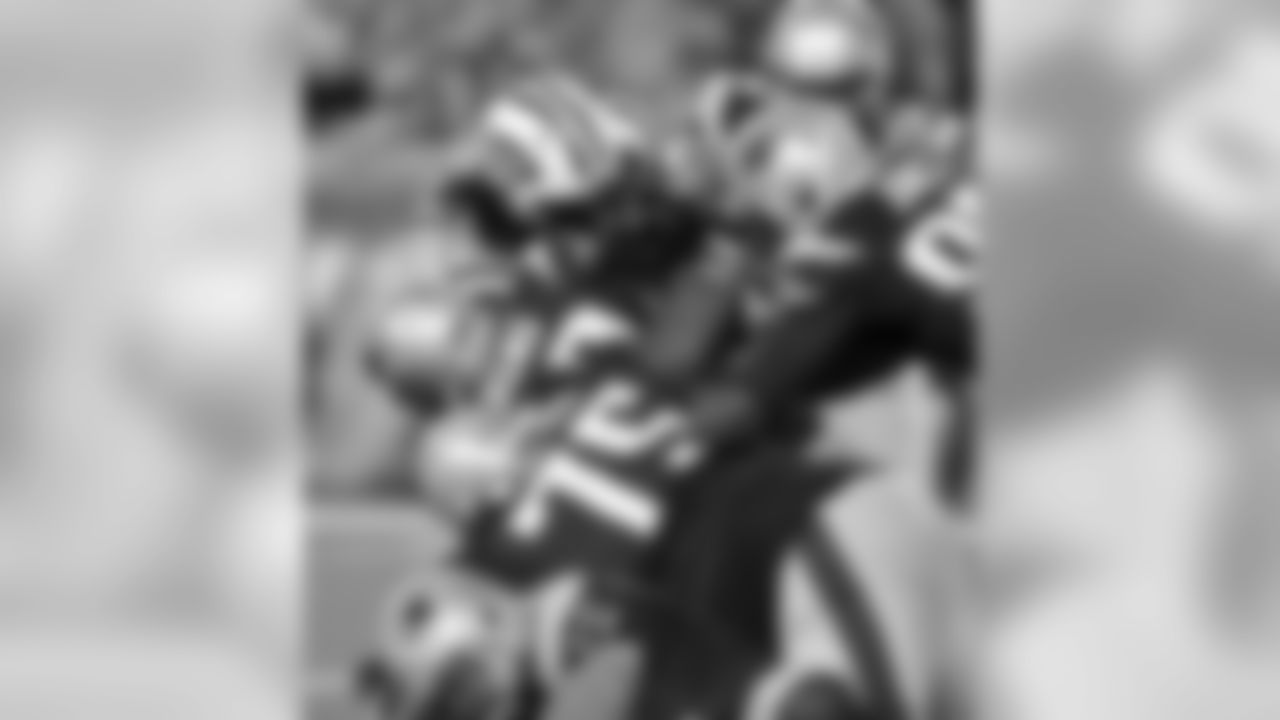
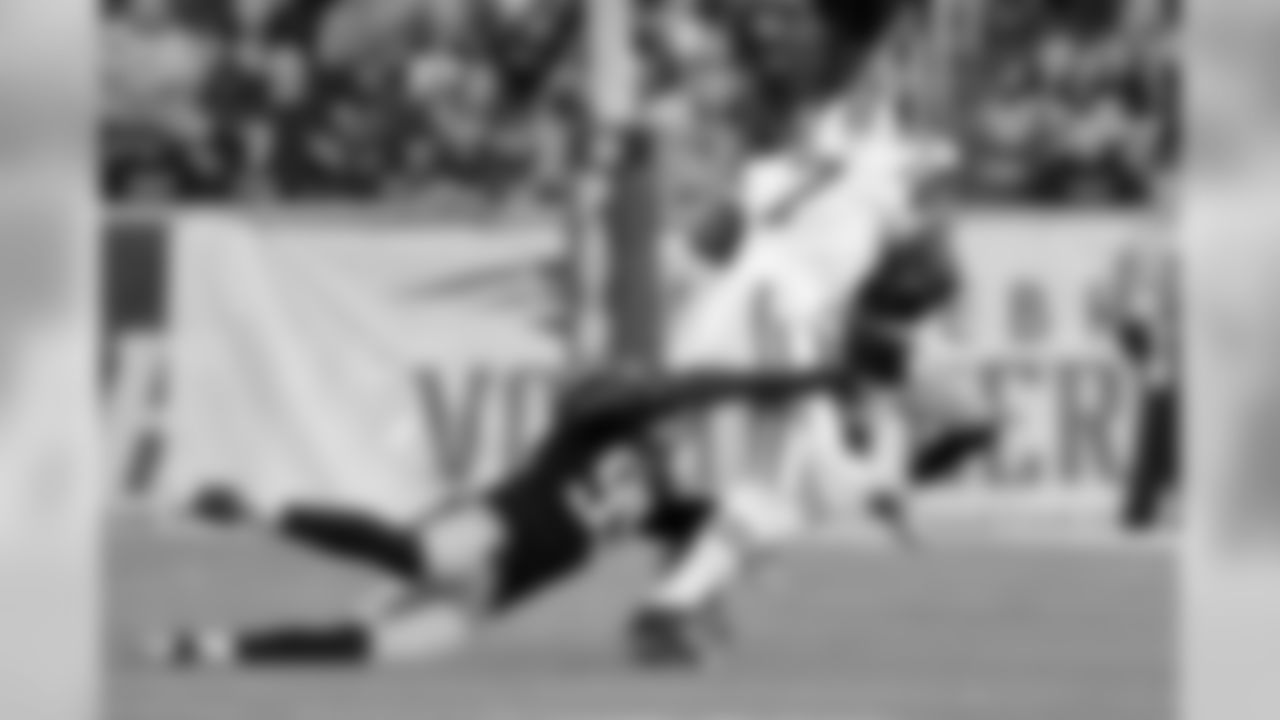

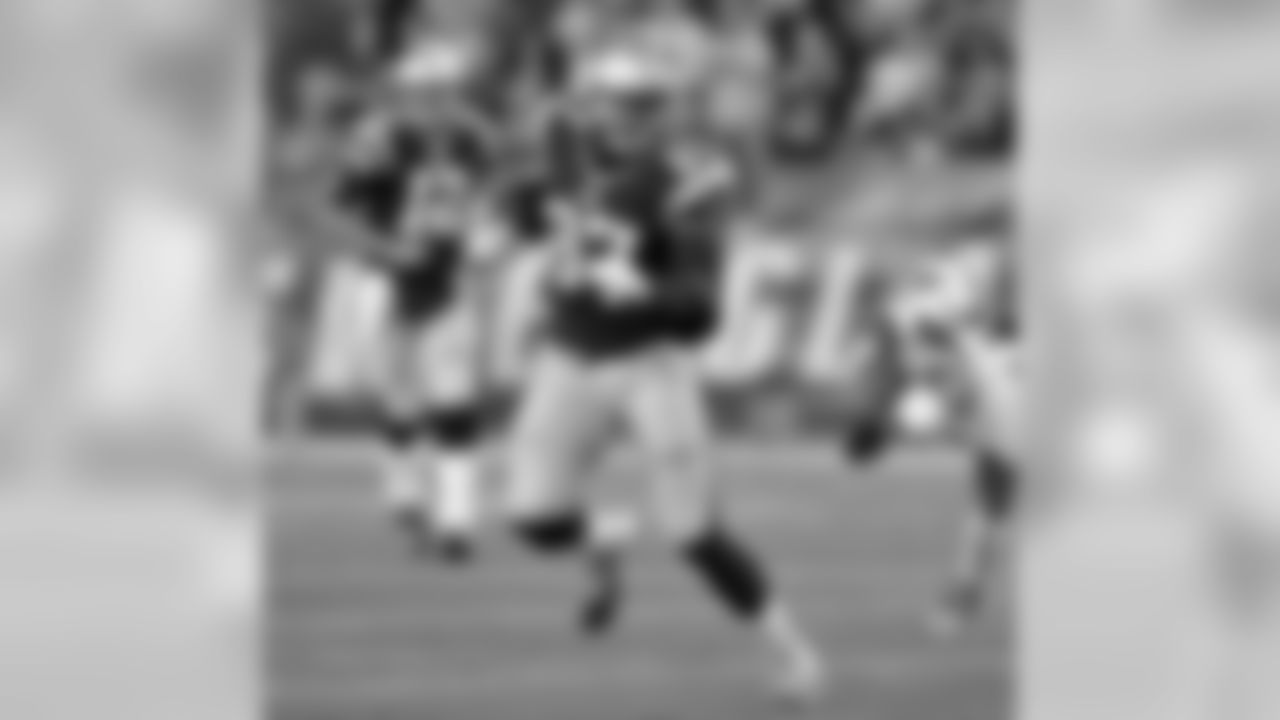
New England Patriots vs New York Jets.
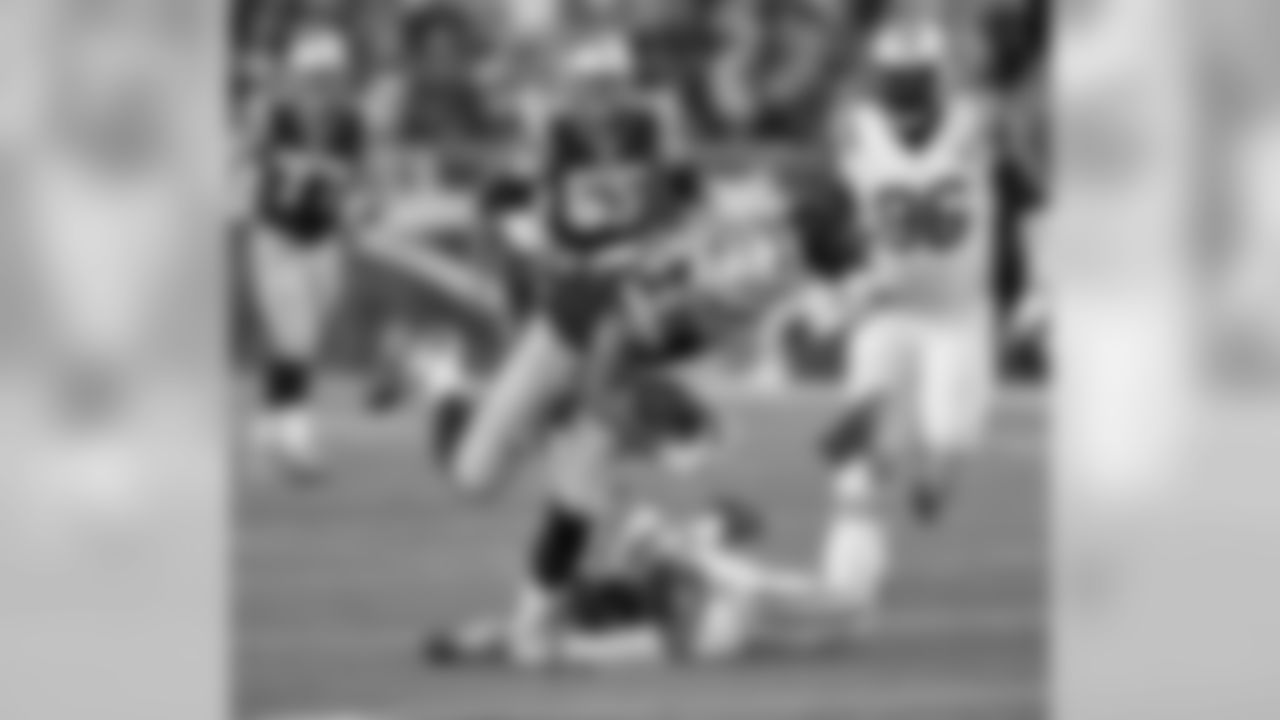
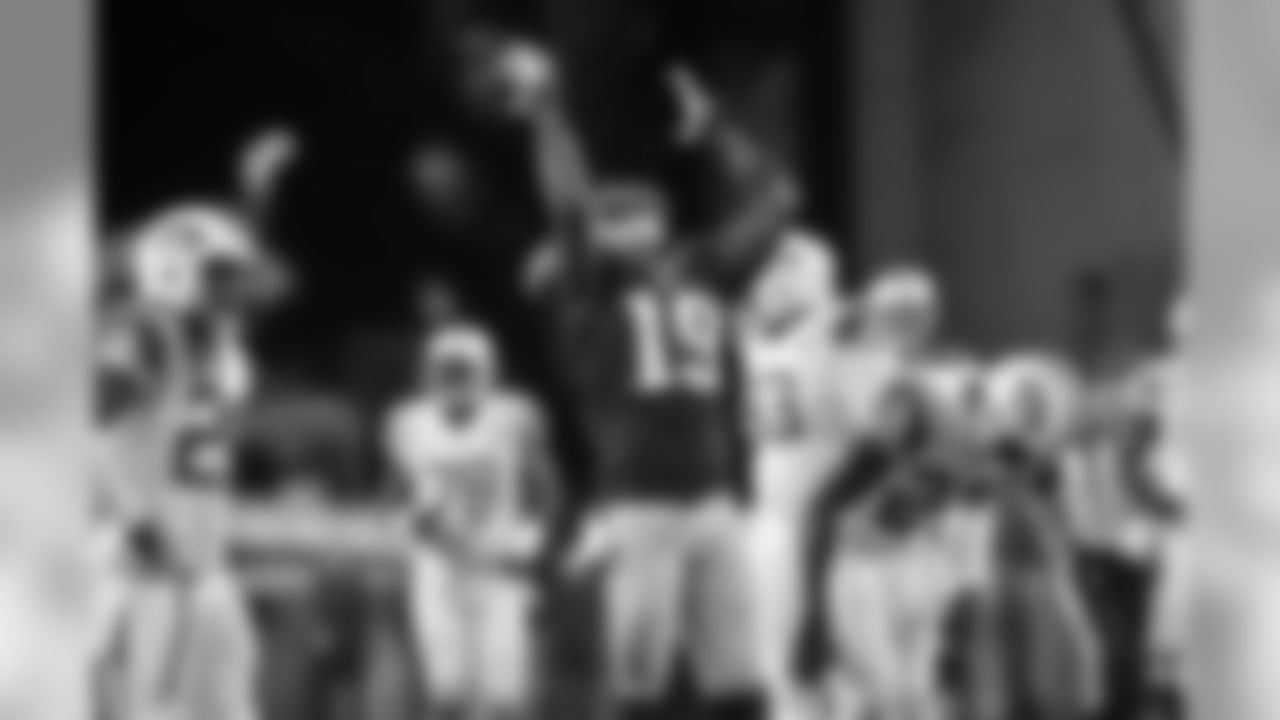
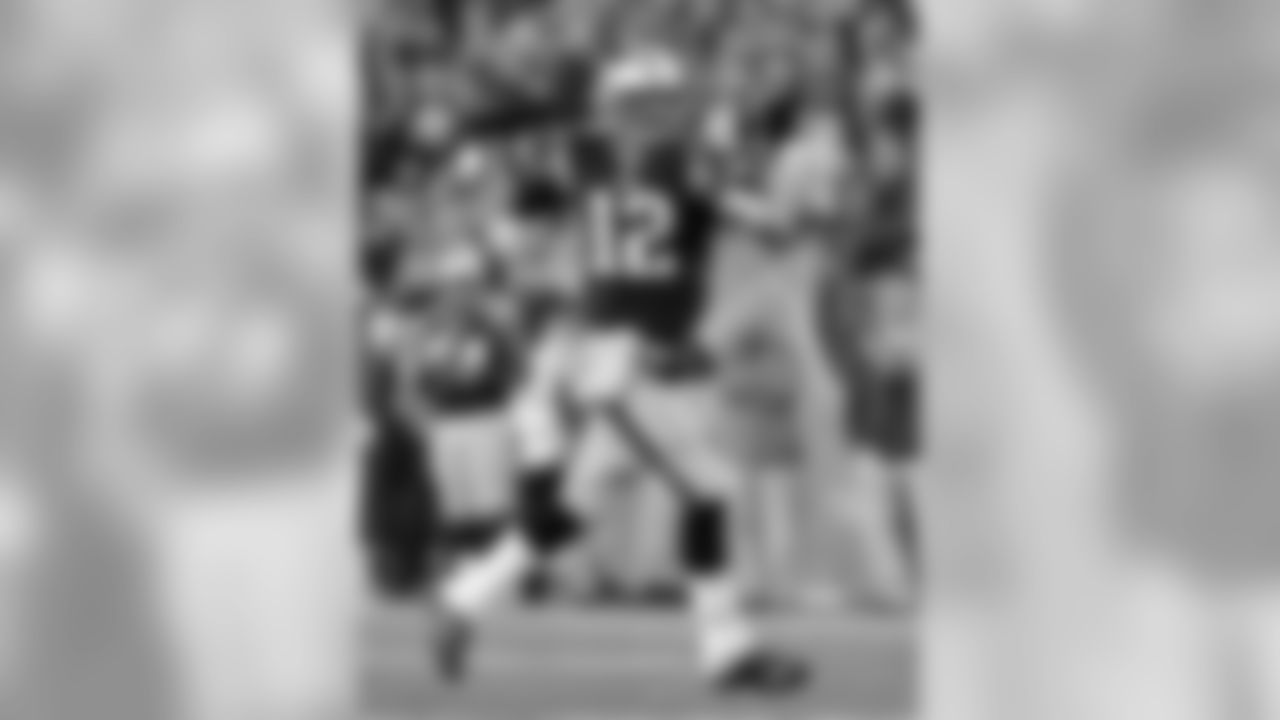

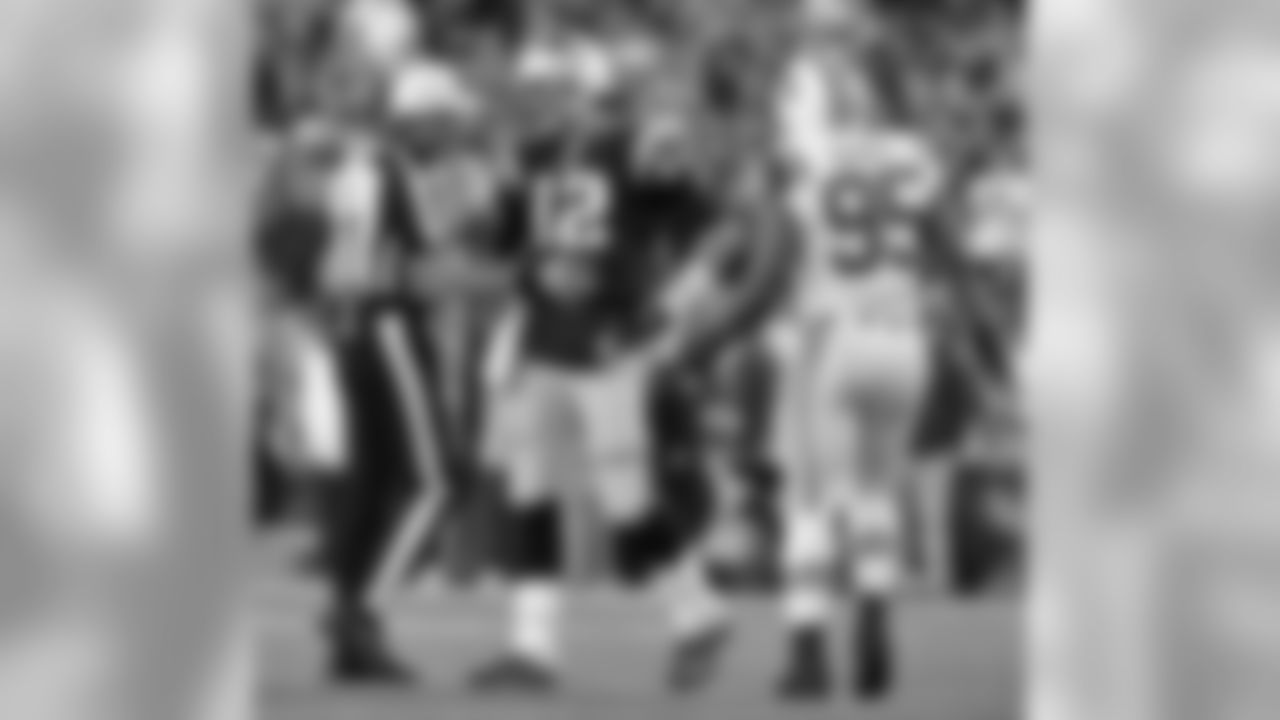
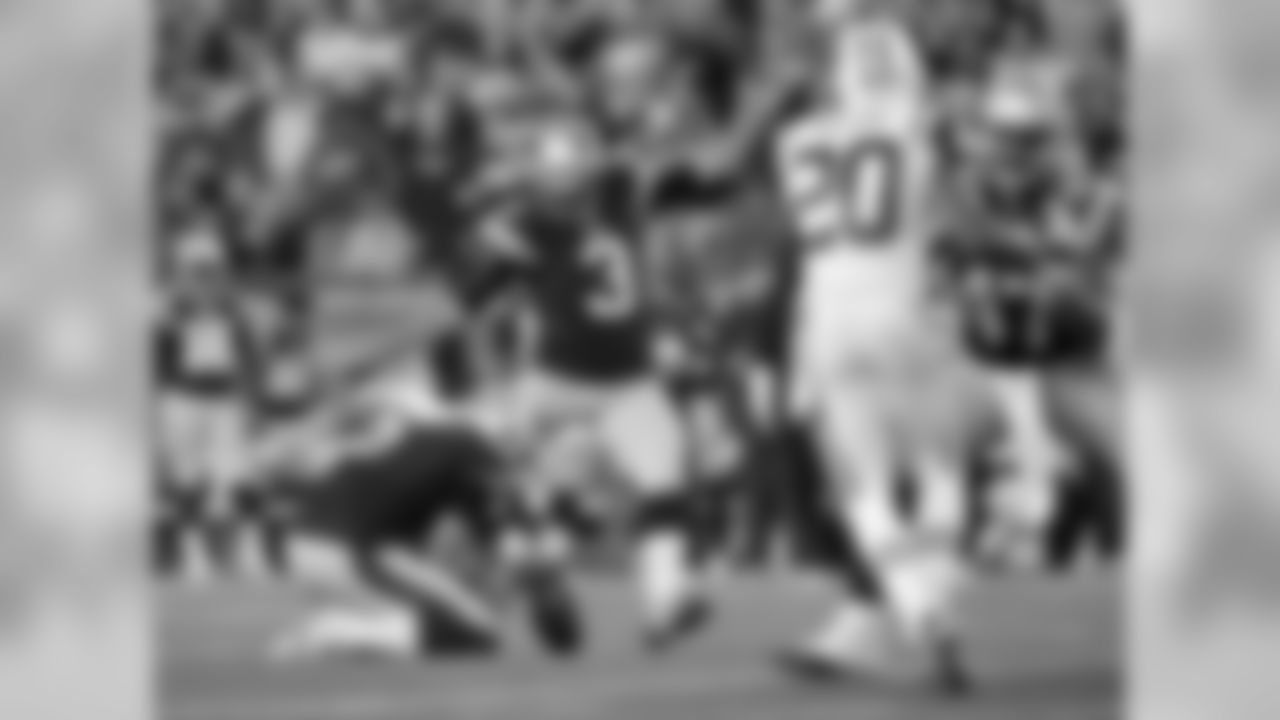

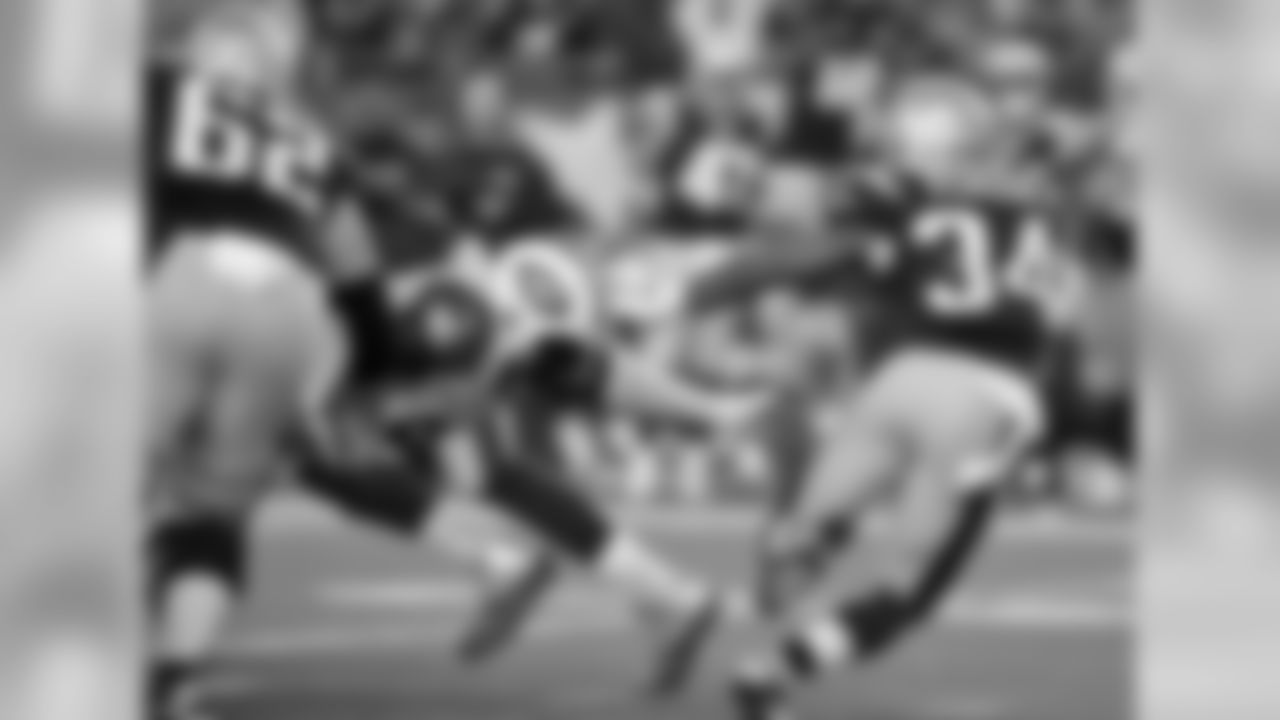
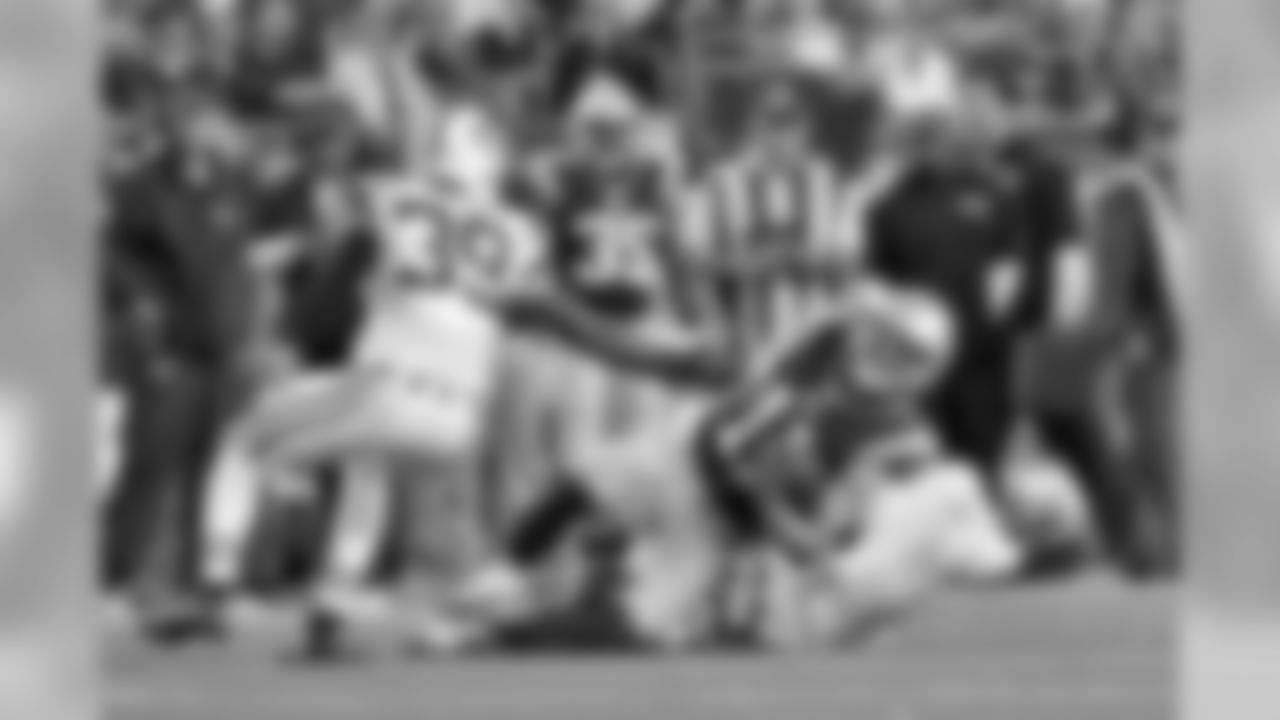

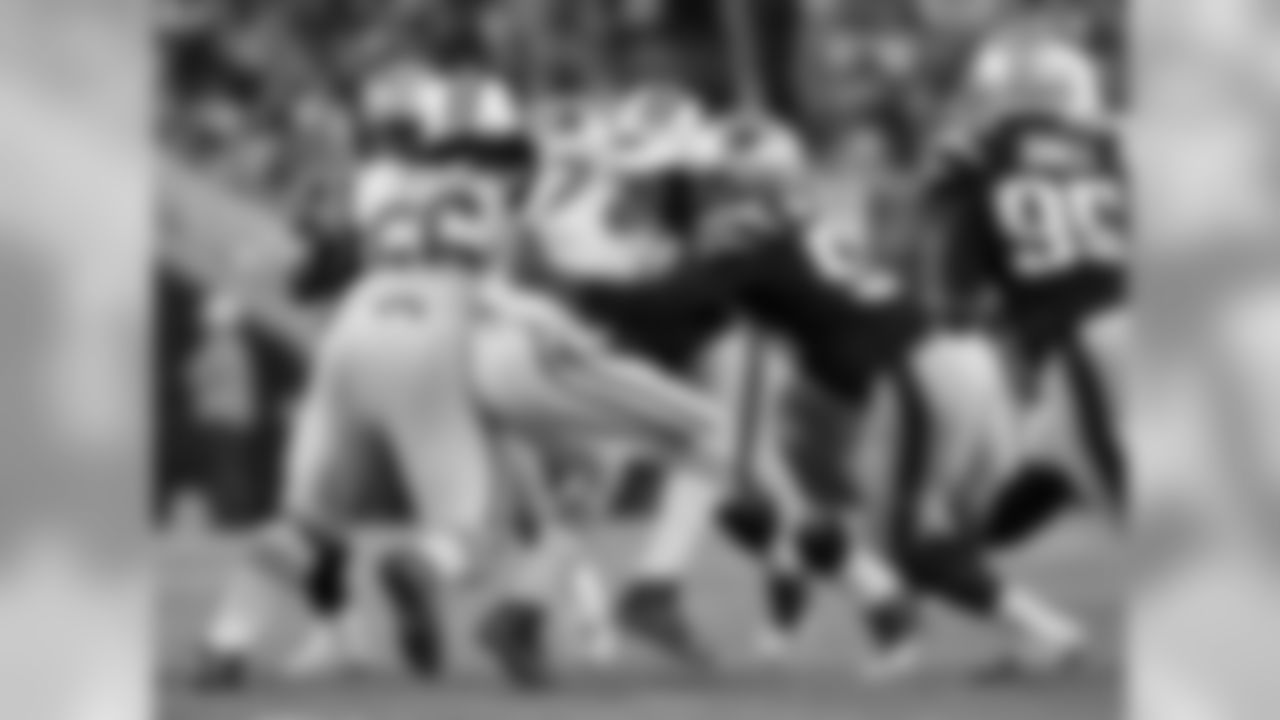

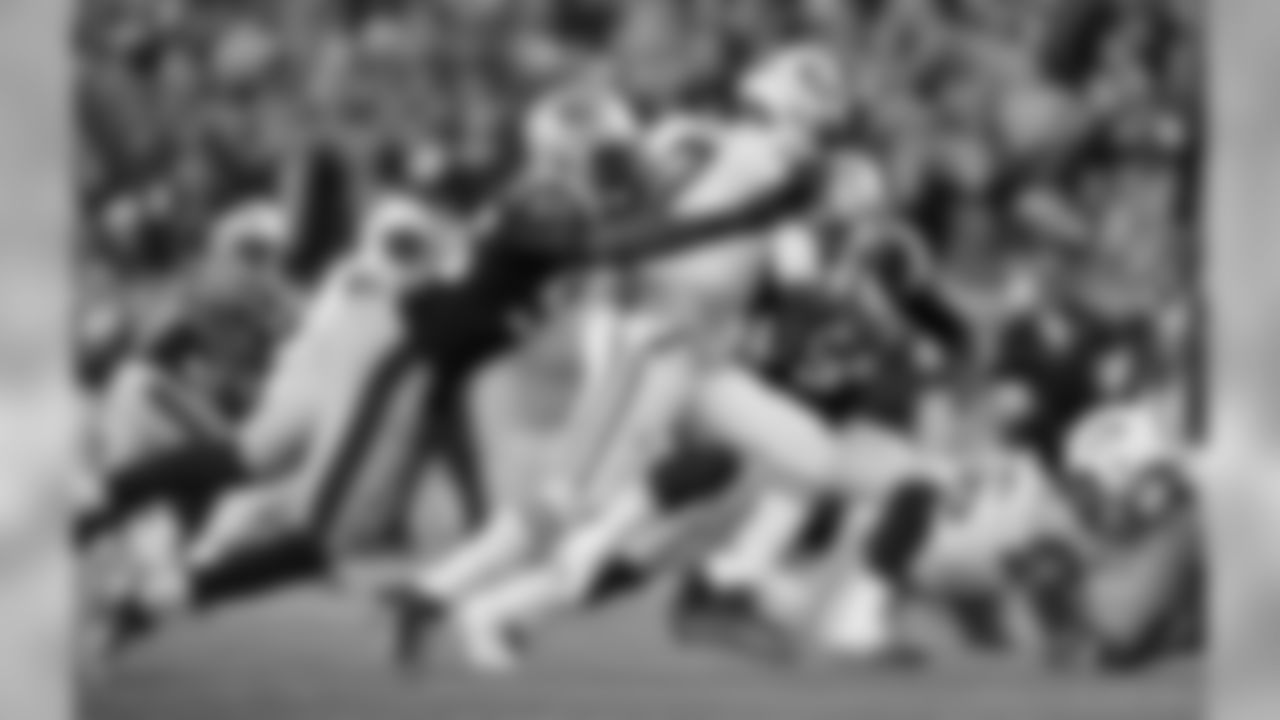
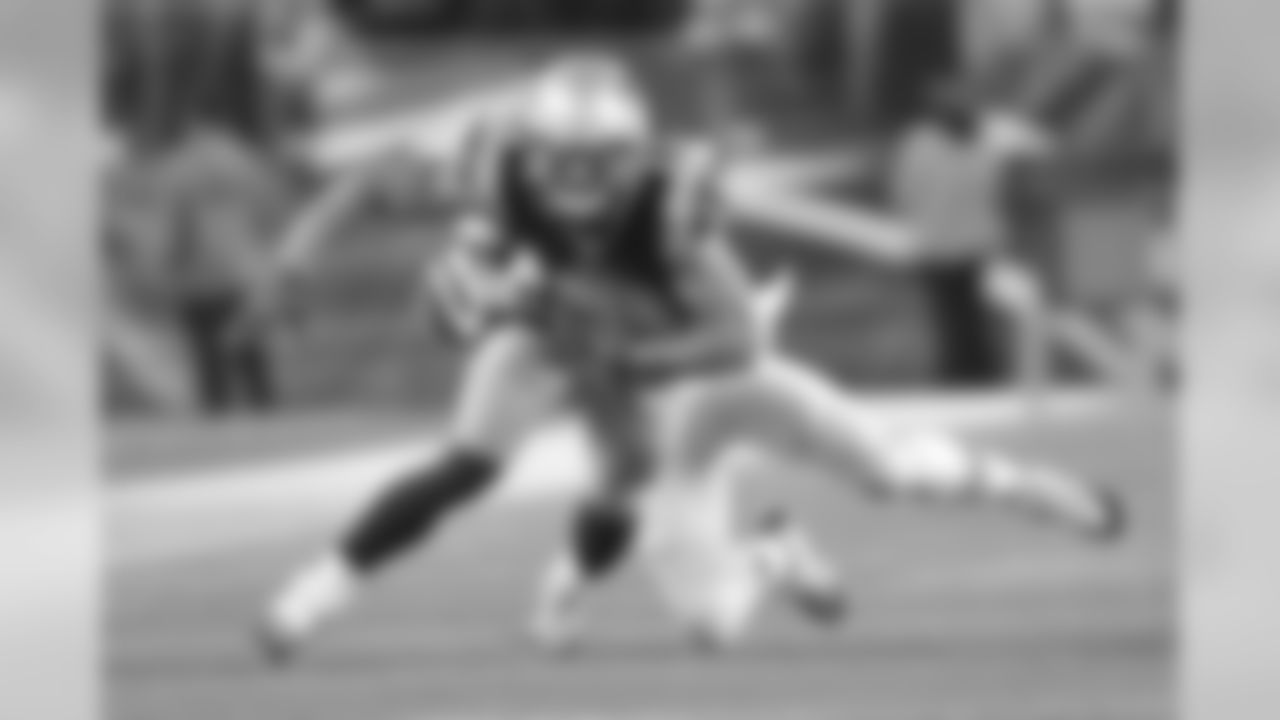
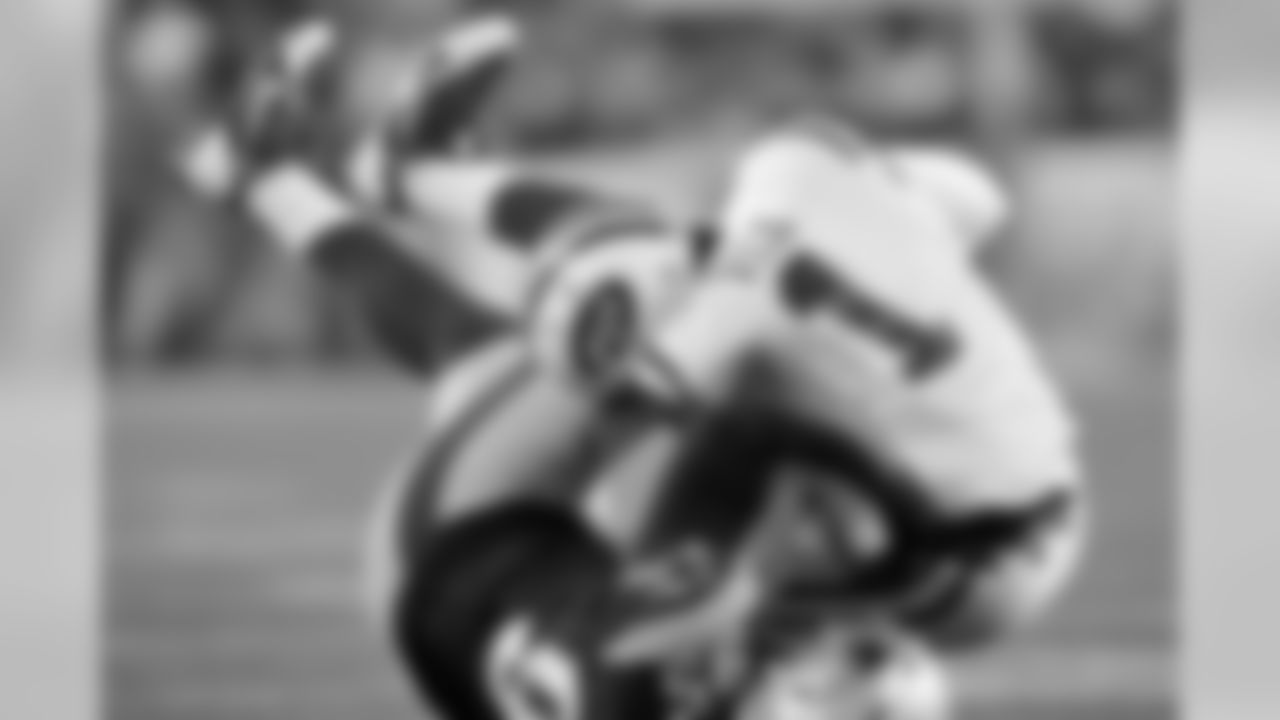
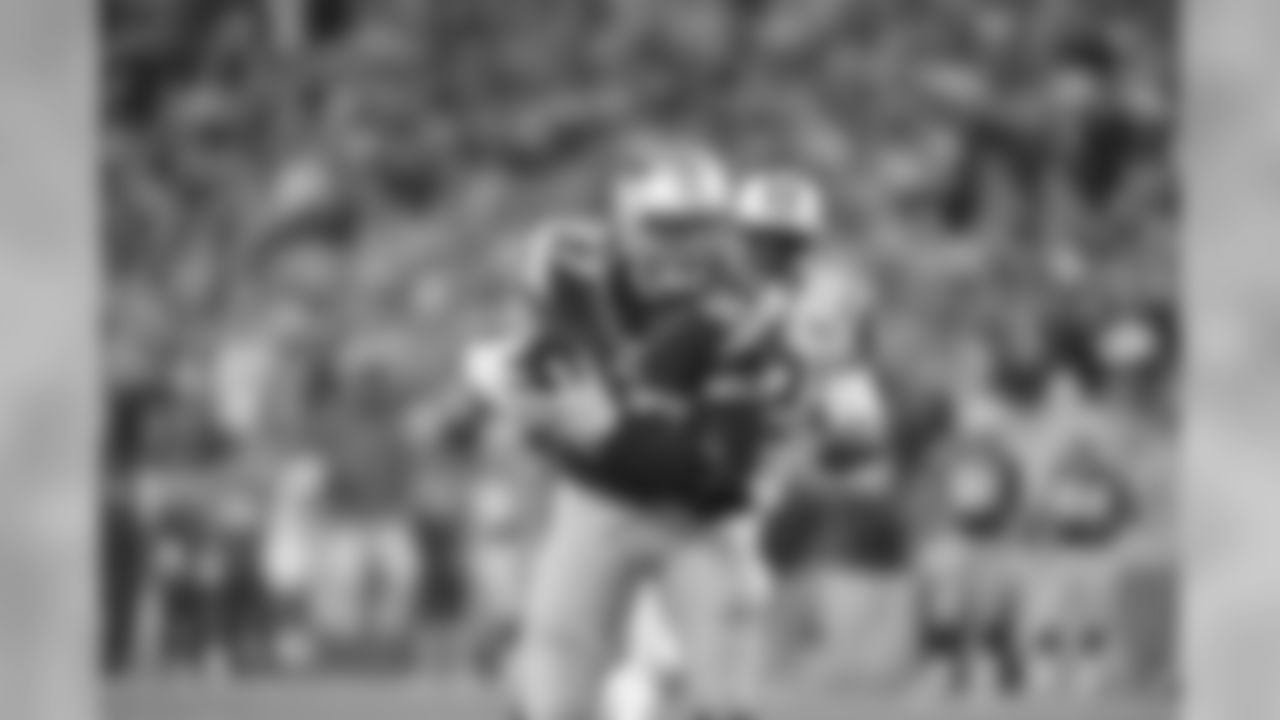
New England Patriots vs New York Jets.
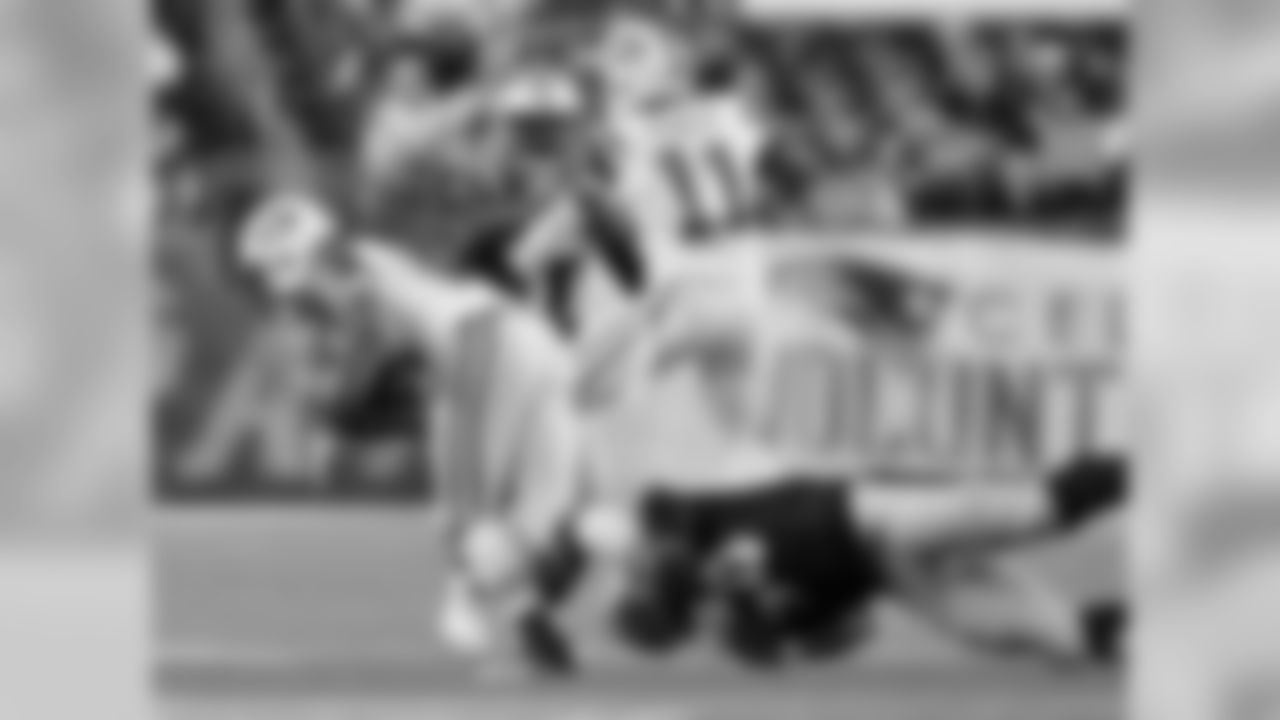
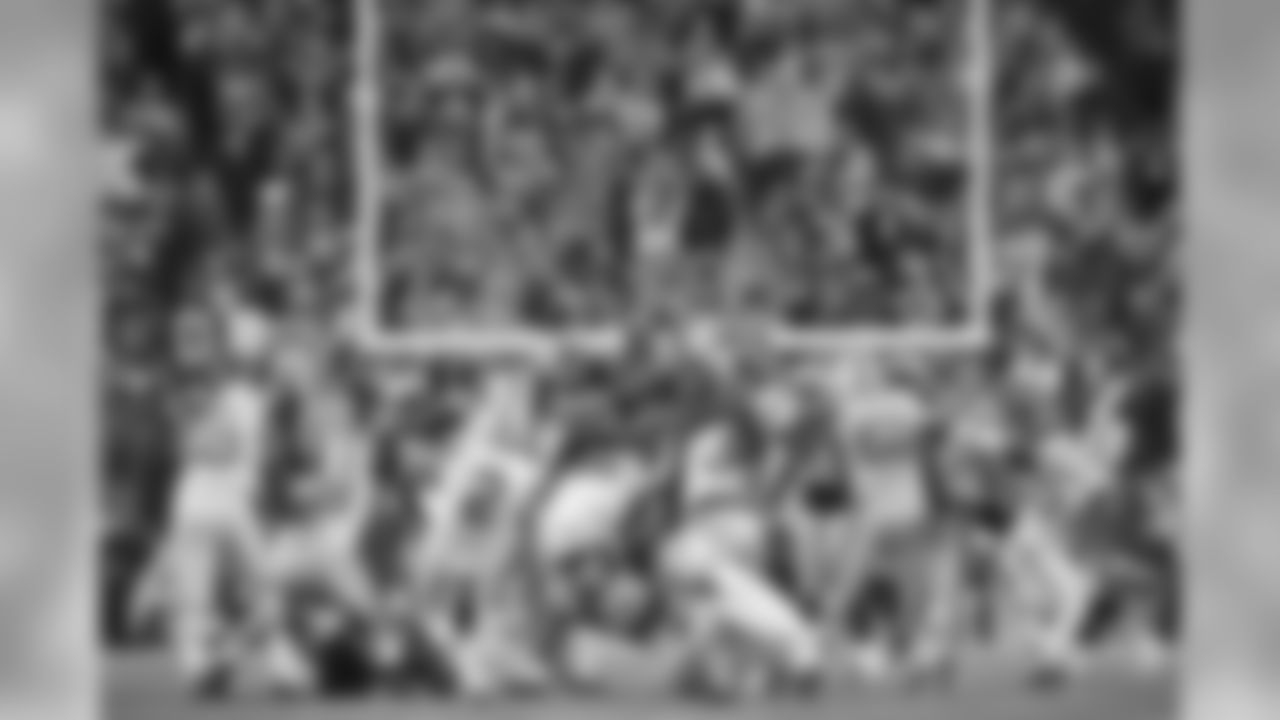

New England Patriots vs New York Jets.



Q:** In one of the passing situations against the Dolphins it seemed like there were one or two down linemen and you dropped everyone back into coverage. Is that something that you have worked on more as the season has gone on or is it something that came up during the situation?
MP: I'm not really sure which specific play with the Dolphins. I've got my mind fully focused here on the Jets. We've got some offensive issues there that we've got to take care of, obviously in the passing game. Certainly week-in [and] week-out we have different schemes that we run and different plays that we are trying to do to best defend what offenses do. I certainly speak on depth with the Jets, obviously with the run game being extremely important for us to handle and then to handle the play-action pass game, we're going to have multiple different looks to be able to help us stop that.
Q: Is the Wildcat something that adds to the Jets impact in the running game?
MP: Yeah, I think the Wildcat is something that the Jets have done a great job of developing in their offense. They have multiple different players that can be put in that position, so it's something you really have to be alert for to defend as a defense. Certainly along with the run game there's an element of the play-action pass game or even they've run some reverses out of it, some different plays where now they'll spread the ball out to different skill set players lined up in maybe non-traditional positions. So they've certainly developed it to a point where they have multiple guys that can run it for them which is even more difficult to try to defend and to recognize and understand. If it's one particular player that just runs the Wildcat you can kind of dial in and be alert for that particular guy in that alignment. They've used just about everybody there. They'll all be back there at some point, whether it's Chris Johnson, [Chris] Ivory, [Bilal] Powell or [Jeremy] Kerley. All of them have been able to be in that position and to run that offense.
**
Q:** Two questions for you. What stands out to you as being different with the Jets now as compared to the October 16th game? What stood out to you as the area that you guys struggled to on defense that will have to be much better this time around?
MP: I'll just wrap them up into one answer here. I think the Jets obviously are doing a great job right now of controlling games. They are trying to put themselves into a tight game every week, where now the game is going down to the last possession or the last couple of possessions where they have a chance to win. I think they are certainly doing a great job at the run game. They are the number two rushing team in the league. So, they've certainly done an excellent job there of getting different ways to gain yards. Obviously Percy Harvin adds a whole different element to their offense that they didn't have previously when we played them, from a multiple threat both running the ball – you'll see him in the backfield quite a bit taking the direct hand off from the quarterback. You'll see him get the ball on different facets of sweeps and reverses – plays were they can get the ball out to him in space [and] obviously catch-and-run type plays where now he can make a lot of things happen. He's certainly a new element that we'll have to contend with. [He's] a very difficult player, a guy with great speed and great football instincts. [He's] someone that can really be a dynamic player in the game. That'll be certainly a challenge for us. I think again, Ivory and Johnson are both extremely good running backs, guys that can really create dynamic plays, explosive plays from the line of scrimmage with the ball. They run it very hard, [they're] downhill-type runners, break a lot of tackles, very physical style along with excellent speed, so certainly a combination there. The quarterback you have to contend with him and his ability to run and to spread the ball out and extend plays. Then Kerley on the outside, [Eric] Decker who is a very, very good player, a very physical type of receiver, big body, great catch radius, can go up and make those difficult plays. Those guys create a lot of problems. I think they've always been solid at the tight end position. I think [Jace] Amaro, the young guy, and then [Jeff] Cumberland do a great job of really solidifying the middle of the field. Whether it's pushing vertical with the routes, blocking or taking care of the underneath short to check down areas where the quarterback can get rid of the ball if there are issues with protection. I think again they are doing a great job of controlling the game, really trying to keep it at a tight, close game and then playing 60 minutes of difficult football.
**
The Patriots clinched the AFC East with a 41-13 win over the Miami Dolphins. Check out photos from the celebration in the locker room after the game.






Q:** Since the start of the season there has been a lot of focus on Darrelle Revis and Brandon Browner in the secondary. Looking at Sunday's game against the Dolphins, what does it mean to you and the defense to see guys like Duron Harmon and Patrick Chung getting turnovers and having such an impact?
MP: I think week-in, week-out we always make a point of emphasis on the entire defense. I think for us it's about collectively as a group trying to improve, trying to get better. I think week-in, week-out it's going to be different players that are going to have opportunities to step up and make plays. When that happens and when that opportunity presents itself you've got to be prepared and ready to go and put yourself in a good position to make plays. I think as a defense as a whole we've had guys contribute in different ways all throughout the year and hopefully we can just continue developing that way and continue to grow the defense and to getting better each week.








































